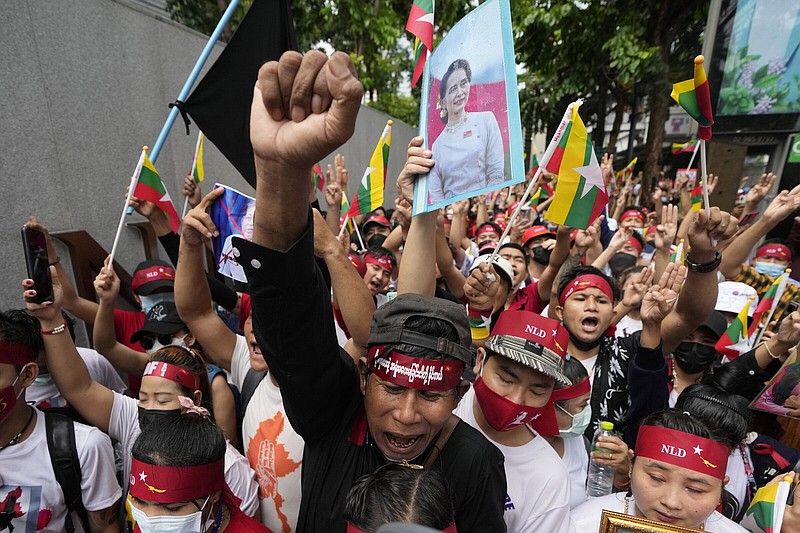Burma's military junta struck a defiant tone Tuesday after executing four pro-democracy activists days earlier, stating that it would not hesitate to repeat the actions, while the United States called on China to exert more political pressure on its neighbor.
The executions were the first death penalties carried out in Burma since 1988, sending shockwaves through the country and sparking widespread international condemnation.
"We had nothing personal with them," military junta spokesman Zaw Min Tun said at a news conference Tuesday in the capital, Naypyitaw. "We proceeded with the laws to keep the stability of the country in line with the rule of law."
Striking a defiant note, he said the four were sentenced legally by the courts, adding: "I will repeat that their acts should be sentenced to death again and again."
Kyaw Min Yu, 51, rose to prominence in student uprisings in 1988 and spent years in and out of prison for his activism. Phyo Zeya Thaw, 41, was a hip-hop artist turned member of parliament who was widely admired among Burmese youths. Two other men, Hla Myo Aung and Aung Thura Zaw, were also executed, state media reported.
Burma is often called Myanmar, a name military authorities adopted in 1989. Some nations, such as the United States and Britain, have refused to adopt the name change.
The United States condemned the killings.
"Such reprehensible acts of violence and repression cannot be tolerated," Secretary of State Antony Blinken tweeted. "We remain committed to the people of Burma and their efforts to restore Burma's path to democracy."
The State Department went further, saying there could be "no business as usual" with the military junta, which took power last year in a coup, after the "heinous acts."
Spokesman Ned Price called the executions "a slap in the face to the millions of Burmese who wish to see their country back on the path to democracy," and urged countries to ban sales of military equipment to the country and "refrain from lending the regime any degree of international credibility."
Price also specifically called out Beijing.
"Arguably, no country has the potential to influence the trajectory of Burma's next steps more so than the PRC [People's Republic of China]," he said. "The fact is that the regime has not faced the level of economic and in some cases diplomatic pressure that we would like to see. We are calling on countries around the world to do more. We will be doing more as well."
Senate Minority Leader Mitch McConnell, R-Ky., also criticized the junta's "illegitimate rule" and called the executions a "dark step backward" for the country that's home to some 55 million people.
"Clearly it is time for Burma's neighbors to shoulder a larger burden," he said in a statement. "It is Burma's neighbors who have the most at stake."
Protests took place Tuesday outside Burmese embassies in Bangkok and Tokyo. Human rights groups, the United Nations and foreign governments have also been swift in their condemnation of the executions.
In Asia, Malaysia called them a crime against humanity, with Foreign Minister Saifuddin Abdullah telling reporters Tuesday that the junta was "making a mockery" of a regional peace plan.
The Association of Southeast Asian Nations, of which Burma is a member, also denounced the executions as "highly reprehensible." It said the killings had been a setback to any dialogue between the junta and the opposition.
In Burma, the National League for Democracy party said in a statement that the four men were killed in "cold blood" and accused the junta of committing "atrocities against the people of Myanmar."
Information for this article was contributed by Cape Diamond, Rebecca Tan and Rachel Pannett of The Washington Post.
